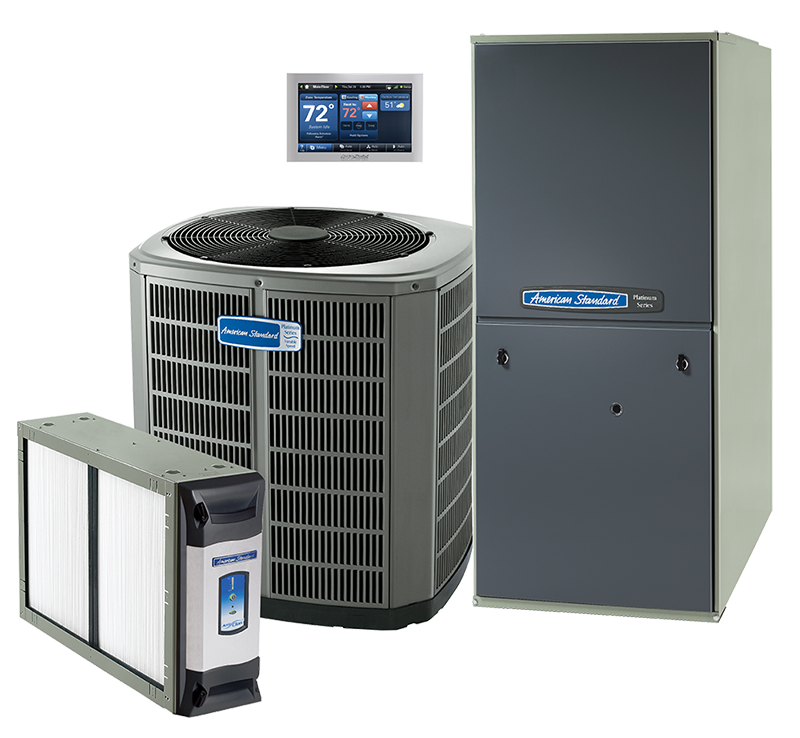Heat Pumps
Are you tired of paying high energy bills just to keep your home comfortable? Are you concerned about the environmental impact of traditional heating and cooling systems? If so, it might be time to consider switching to a heat pump. In this article, we'll explore why heat pumps are here to stay and how they can benefit your home and the environment.
Key Takeaways
- Heat pumps are much more efficient than traditional HVAC systems using fossil fuels (natural gas, propane, heating oil).
- Heat pumps can provide more consistent heating and cooling throughout the year, plus report significant energy savings and improved indoor air quality with true air filtration.
- Federally funded IRA (Inflation Reduction Act) incentives recognize the key role of highly efficient, variable-capacity heat pumps in slashing domestic GHG emissions and lowering energy costs for Americans.
First, let's take a quick trip through history. Heating and cooling systems have come a long way from the days of fireplaces and window fans. Traditional HVAC systems use fossil fuels or electricity to generate hot or cold air, which is then circulated throughout the building. Heat pumps, on the other hand, work by moving heat from one location to another, rather than generating it from scratch.

How Exactly do Heat Pumps Work?
Essentially, heat pumps absorb heat from the air or ground outside and transfer it indoors to heat your home. When you need cooling, the process is reversed: heat is absorbed from the inside and expelled outside. This process is much more efficient than traditional heating and cooling system and can result in lower energy bills and fewer greenhouse gas emissions.
In practice, heat pumps have proven to be highly effective in a variety of settings. Many homes and buildings have already made the switch, and have reported significant energy savings and improved indoor air quality. Heat pumps can also provide more consistent heating and cooling throughout the year, since they don't rely on temperature swings in the outside air to function.
While there are some drawbacks to heat pumps (for example, they may not be as effective in extreme temperatures), the environmental benefits are hard to ignore. Heat pumps produce significantly fewer greenhouse gas emissions than traditional HVAC systems, and can play a crucial role in combating climate change.
Heat Pump Incentives from the Inflation Reduction Act (IRA)
The Inflation Reduction Act of 2022 (IRA) is the largest ever climate investment by the Federal Government in American history, projected to reduce greenhouse gas (GHG) by 31% to 44% below the 2005 levels by 2030. The IRA will also bring energy bill relief to U.S. households by incentivizing the adoption of more efficient, all-electric appliances. Importantly, the IRA recognizes the key role of highly efficient, variable-capacity heat pumps in slashing domestic GHG emissions and lowering energy costs for Americans.
Please note, heat pump incentives and rebates continually change. Contact Got Watts to discuss your project and determine what heat pumps are suitable for your project and budget.

A Bright Future for Heat Pumps
Looking to the future, there's a lot of exciting research and development happening in the world of heat pump technology. New materials and designs are being explored to make heat pumps even more efficient and affordable. In fact, the global heat pump market is projected to grow significantly over the next decade, as more and more people recognize the benefits of this innovative technology.
Final Thoughts on Heat Pumps
In conclusion, if you're in the market for a new heating and cooling system, it's worth considering a heat pump, especially in the SF Bay Area. Not only can it save you money on your energy bills, but it can also help reduce your carbon footprint and contribute to a more sustainable future. With continued innovation and growth in the market, it's clear that heat pumps are here to stay.
Still, have questions? Looking for information and pricing on heat pumps? Feel free to contact Got Watts to discuss your project and possible incentives.
